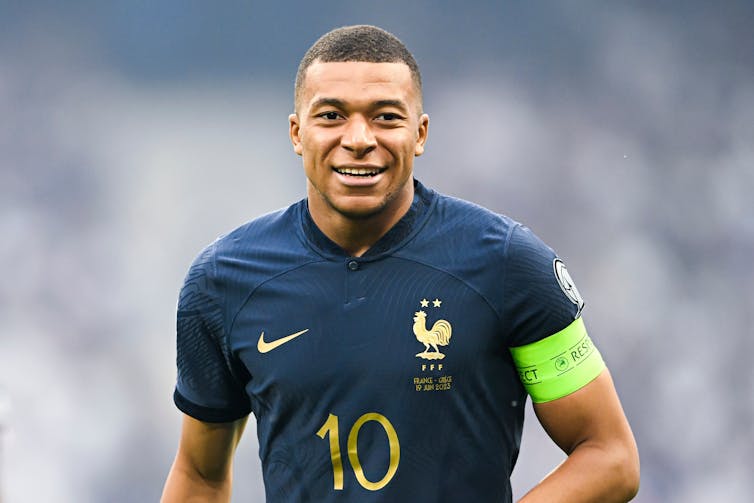The Uefa Euro 2024 men’s football tournament is an event which celebrates great skill and athleticism. But it is also a chance for national teams to demonstrate the importance of leadership and teamwork in their quest for success.
Concepts such as trust, harmony and empowerment will be on display. As the goals go in and matches are won and lost, here are five team-building theories that could give clues to who will ultimately triumph.
1. Star performers
One long-established theory about teamwork (from 1920) is the “Köhler effect”, which describes a tendency for members of a team to perform at that group’s average level. This means that low-performing members are motivated to improve – but also that high-performing members might end up dropping down.
To counter this effect, it is crucial to maintain standards, and the responsibility for this often falls to the biggest stars. Players like Cristiano Ronaldo (Portugal), Kevin De Bruyne (Belgium), Kylian Mbappé (France) and Harry Kane (England) will be relied upon not to adapt to the team’s average level – but to motivate their teammates to reach higher standards.
The big names should not only focus on their own performances but be mentors to their less-experienced teammates, particularly when things are looking tough.
2. Empowering players
Another concept to look out for is the “Ringelmann effect”, which was based on a tug-of-war experiment in 1927. This showed that adding more participants to a team ended up reducing the levels of individual effort, because of decreased accountability and visibility.
This is a potential risk for football teams, where players are sometimes accused of “hiding” – or not being present – during games. Instead, coaches can seek to empower their players and give them a strong sense of responsibility.
Some coaches appear keen to give their players a role in deciding how to approach games and training. As England’s manager, Gareth Southgate, explained:
I like players to have responsibility – to think about what we are asking them to do; to have an opinion on the way we are asking them to play, and the way we are asking them to train.
The aim here is to develop players’ leadership skills so that they take ownership of their own decisions and personal development.
3. Trust
Research has identified trust as a key element of a team’s performance. When a team leader and other members trust each other’s skills and abilities, it increases confidence and cooperation – and team performance.
In the world of football, Ronaldo and Mbappé have excelled individually and shown great confidence in their own skills. However, it can be argued that they achieved national team success only when they began to trust in fellow players such as Portugal’s Eder, who scored the decisive goal in the Euro 2016 final, and Olivier Giroud, who has netted several crucial goals for France.

When coaches and top players trust their teammates, team members’ confidence increases and they reciprocate this trust with increased commitment and motivation.
4. Values
One popular management theory argues that leaders’ decisions and behaviour should be based on their personal values in order to create a supportive and motivating team culture. An adaptation of this approach before Euro 2020 came from Denmark’s head coach Kasper Hjulmand, who engaged in in-depth conversations with around 30 people from various backgrounds, including politicians, businessmen, artists and athletes. Hjulmand said he wanted to better understand the values of Danish society such as diversity, tolerance and respect.
“It all starts with who we are” was Hjulmand’s starting point when he became Denmark’s coach. This approach helped him to create a football philosophy that was particularly helpful during the last Euros when one of his key players, Christian Eriksen, suffered a heart attack on the pitch. Relying on shared values and mutual support surely helped the team to deal with that shocking experience, and even go on to reach the semi-finals.
5. Enemies and conflict
Another team building phenomenon occurs when members of a group unite against a common enemy. In the case of international football, this might be critical pundits, or endless sniping on social media over player selections and tactics. Research suggests that sometimes criticism can be a unifying force, as team members form stronger bonds as a reaction to this external negativity.
But even the strongest bonds can break under immense pressure. Poorly performing teams often suffer from personal conflicts, which can lead to disagreements and a toxic culture.
Coaches at Euro 2024 will be working hard to create a good atmosphere within their squads, and then to maintain it as expectations get higher. Yet for most sides and their supporters, the event will ultimately end with some degree of disappointment.
And this is when the challenges of leadership and team building are perhaps greatest – when the coaches and players try to pick themselves up and retain their levels of trust and motivation, as they begin the long qualification process for the next major international tournament.


